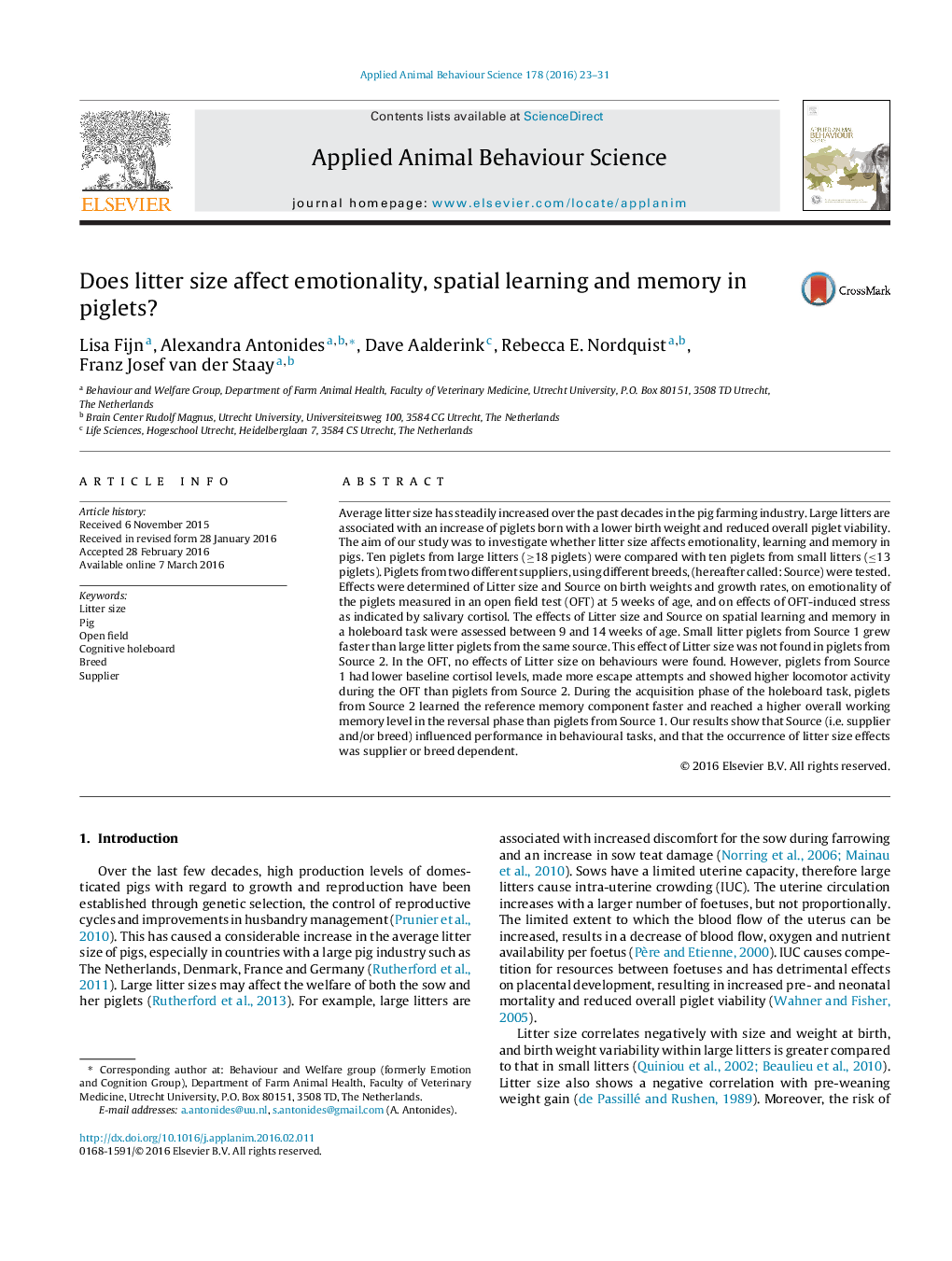| کد مقاله | کد نشریه | سال انتشار | مقاله انگلیسی | نسخه تمام متن |
|---|---|---|---|---|
| 6379397 | 1625328 | 2016 | 9 صفحه PDF | دانلود رایگان |
- We investigated the effects of litter size on emotionality and learning in pigs.
- Surprisingly, supplier/breed but not litter size affected emotionality responses.
- Supplier/breed also had an effect on learning and memory measures.
- Litter size differentially affected some memory measures in pigs of the two suppliers.
- Our results show that supplier and/or breed can influence behavioural performance.
Average litter size has steadily increased over the past decades in the pig farming industry. Large litters are associated with an increase of piglets born with a lower birth weight and reduced overall piglet viability. The aim of our study was to investigate whether litter size affects emotionality, learning and memory in pigs. Ten piglets from large litters (â¥18 piglets) were compared with ten piglets from small litters (â¤13 piglets). Piglets from two different suppliers, using different breeds, (hereafter called: Source) were tested. Effects were determined of Litter size and Source on birth weights and growth rates, on emotionality of the piglets measured in an open field test (OFT) at 5 weeks of age, and on effects of OFT-induced stress as indicated by salivary cortisol. The effects of Litter size and Source on spatial learning and memory in a holeboard task were assessed between 9 and 14 weeks of age. Small litter piglets from Source 1 grew faster than large litter piglets from the same source. This effect of Litter size was not found in piglets from Source 2. In the OFT, no effects of Litter size on behaviours were found. However, piglets from Source 1 had lower baseline cortisol levels, made more escape attempts and showed higher locomotor activity during the OFT than piglets from Source 2. During the acquisition phase of the holeboard task, piglets from Source 2 learned the reference memory component faster and reached a higher overall working memory level in the reversal phase than piglets from Source 1. Our results show that Source (i.e. supplier and/or breed) influenced performance in behavioural tasks, and that the occurrence of litter size effects was supplier or breed dependent.
Journal: Applied Animal Behaviour Science - Volume 178, May 2016, Pages 23-31
